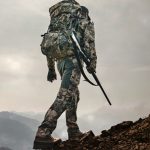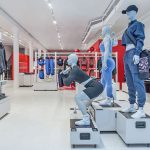Recreational Equipment, Inc. (REI) announced its membership with bluesign technologies ag, allowing the company to use the bluesign independent standard as part of its product design and sourcing process.
REI considers the bluesign standard as the strongest global solution available to proactively address textile environmental, health and safety strategy. Further, utilizing the standard is an important step in managing the substances used to create products the co-op sells under its branded labels.
With this announcement, the design teams for REI branded apparel and cycling brands will begin to use the bluesign standard to help make more informed textile supply chain choices. For example, designers will utilize the standard in making yarn, fabric and dye decisions and in the selection of mills and production factories. This approach will provide greater supply chain transparency in support of REI's goal of reducing the environmental impact of its products.
REI has a number of efforts in place to reduce its environmental footprint and increase its product stewardship involvement. For example, the co-op is currently working with other outdoor brands and retailers to help drive positive, lasting change within the industry. The co-op was a founding member of the Outdoor Industry Associations (OIA) Eco-Working Group, an industry organization establishing a common framework to measure, report and ultimately improve on the environmental impact of outdoor gear and clothing. Today, the group includes more than 100 brands, manufacturers and others working toward a mutually agreeable definition of what “green” means for products and apparel. bluesign's methodology covers a significant portion of the material impacts that the OIA Eco-Working Group is considering.















